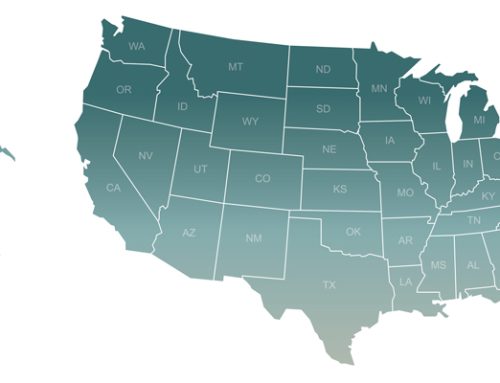Source: RSM US LLP.
TAX ALERT |
House Democrats have released a rewrite of their Build Back Better Act and cut the spending level to $1.75 trillion, nearly one-half of the previously proposed level. The bill is expected to be presented to the House Rules Committee and maintain support among the Democratic party where very few votes can be lost in order to proceed. It is likely that very few, if any, House Republicans will vote in support of the bill. There would still need to be a Senate vote before the bill can be finalized and changes are likely to be made along the way. This is an indication of the current state of play, however as negotiations and the search for revenue continues, there is always the possibility of old provisions reappearing or entirely new provisions making their way in.
In the rewrite, many tax proposals that were worrisome to wealthy taxpayers were eliminated due to lack of support. The remaining proposals provide the bill with the necessary revenue to fund the remaining spending provisions with less push-back. A summary of the original proposals affecting high-income earners and wealthy individuals was previously published on Sept. 22, 2021.
What was included?
- The gain exclusion on the sale of qualified small business stock (section 1202) would be limited to 50% for taxpayers with adjusted gross income (AGI) in excess of $400,000. The limitation would apply to all trusts and estates regardless of income level. This proposal would remain effective for sales after Sept. 13, 2021 with an exception for certain binding contracts.
- The Net investment income (NII) tax would include ‘specified income’ for high-income taxpayers, which would subject certain active trade or business income to the additional 3.8% tax that was previously excluded. The high-income threshold for individuals for this new expanded definition to apply would be modified adjusted gross income (MAGI) of $400,000 (Single), $500,000 (Married Filing Jointly). For trusts and estates, the high-income threshold would equal the income level at which the top income tax bracket is reached or an estimated $13,450 of income for 2022. This proposal would remain effective for taxable years beginning after Dec. 31, 2021.
- The excess business loss limitation would be made permanent and remove net operating loss (NOL) treatment for the disallowed amount in future years. This could prevent the losses from being taken until there is sufficient income from the business activity, similar to the current passive activity loss rules. This proposal would remain effective for taxable years beginning after Dec. 31, 2020.
- A surcharge tax on high-income individuals, estates and trusts with MAGI in excess of specified thresholds. This proposal was changed to apply a 5% surcharge tax on an individual’s MAGI that exceeds $10 million or $200,000 of MAGI for a trust or estate. There is an additional 3% surcharge tax on an individual’s MAGI in excess of $25 million or $500,000 of MAGI for trusts and estates. MAGI is calculated based on AGI less the investment interest expense deduction. The charitable contribution deduction would not be available to reduce MAGI. This proposal would remain effective for taxable years beginning after Dec. 31, 2021.
What was eliminated?
There were several proposed tax increases for wealthy individuals that did not make it into the latest version of the proposed legislation. The proposed changes that were eliminated are as follows:
- The increase in the top income rate tax to 39.6% (the top 37% rate currently is scheduled to revert to 39.6% in 2026 under current law)
- The increase in the top capital gains tax rate to 25%
- The reduced estate and gift lifetime exemption to an estimated $6,020,000 level (the temporary increase in the exemption will revert in 2026 under current law)
- The estate inclusion of grantor trusts and gain recognition on transactions with grantor trusts
- The loss of valuation discounts for certain transfers of nonbusiness assets
- The changes to the Qualified Business Income (QBI) deduction limitation
- The proposed IRA and retirement plan changes
This version of the House bill is expected to move to the House floor for a vote in the near future. Further updates will be communicated as progress is made.
This article was written by Carol Warley, Rebecca Warren, Tandilyn Cain and originally appeared on 2021-10-29.
2021 RSM US LLP. All rights reserved.
https://rsmus.com/what-we-do/services/tax/private-client/build-back-better-act-what-is-in-and-what-is-out.html
The information contained herein is general in nature and based on authorities that are subject to change. RSM US LLP guarantees neither the accuracy nor completeness of any information and is not responsible for any errors or omissions, or for results obtained by others as a result of reliance upon such information. RSM US LLP assumes no obligation to inform the reader of any changes in tax laws or other factors that could affect information contained herein. This publication does not, and is not intended to, provide legal, tax or accounting advice, and readers should consult their tax advisors concerning the application of tax laws to their particular situations. This analysis is not tax advice and is not intended or written to be used, and cannot be used, for purposes of avoiding tax penalties that may be imposed on any taxpayer.
RSM US Alliance provides its members with access to resources of RSM US LLP. RSM US Alliance member firms are separate and independent businesses and legal entities that are responsible for their own acts and omissions, and each are separate and independent from RSM US LLP. RSM US LLP is the U.S. member firm of RSM International, a global network of independent audit, tax, and consulting firms. Members of RSM US Alliance have access to RSM International resources through RSM US LLP but are not member firms of RSM International. Visit rsmus.com/aboutus for more information regarding RSM US LLP and RSM International. The RSM(tm) brandmark is used under license by RSM US LLP. RSM US Alliance products and services are proprietary to RSM US LLP.




